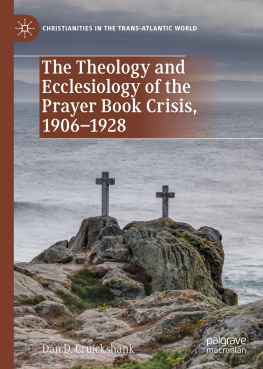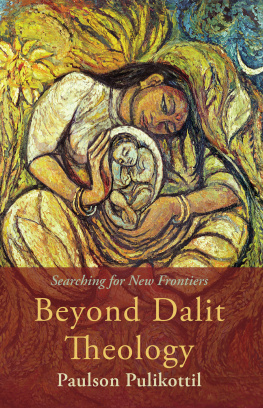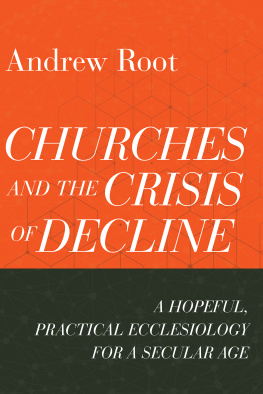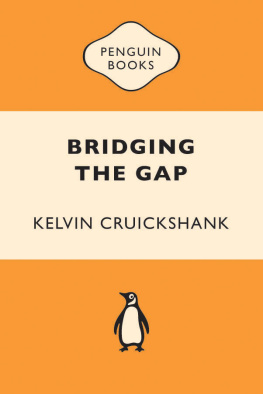Dan D. Cruickshank - The Theology and Ecclesiology of the Prayer Book Crisis, 1906–1928
Here you can read online Dan D. Cruickshank - The Theology and Ecclesiology of the Prayer Book Crisis, 1906–1928 full text of the book (entire story) in english for free. Download pdf and epub, get meaning, cover and reviews about this ebook. publisher: Springer International Publishing, genre: Religion. Description of the work, (preface) as well as reviews are available. Best literature library LitArk.com created for fans of good reading and offers a wide selection of genres:
Romance novel
Science fiction
Adventure
Detective
Science
History
Home and family
Prose
Art
Politics
Computer
Non-fiction
Religion
Business
Children
Humor
Choose a favorite category and find really read worthwhile books. Enjoy immersion in the world of imagination, feel the emotions of the characters or learn something new for yourself, make an fascinating discovery.
- Book:The Theology and Ecclesiology of the Prayer Book Crisis, 1906–1928
- Author:
- Publisher:Springer International Publishing
- Genre:
- Rating:5 / 5
- Favourites:Add to favourites
- Your mark:
- 100
- 1
- 2
- 3
- 4
- 5
The Theology and Ecclesiology of the Prayer Book Crisis, 1906–1928: summary, description and annotation
We offer to read an annotation, description, summary or preface (depends on what the author of the book "The Theology and Ecclesiology of the Prayer Book Crisis, 1906–1928" wrote himself). If you haven't found the necessary information about the book — write in the comments, we will try to find it.
The Theology and Ecclesiology of the Prayer Book Crisis, 1906–1928 — read online for free the complete book (whole text) full work
Below is the text of the book, divided by pages. System saving the place of the last page read, allows you to conveniently read the book "The Theology and Ecclesiology of the Prayer Book Crisis, 1906–1928" online for free, without having to search again every time where you left off. Put a bookmark, and you can go to the page where you finished reading at any time.
Font size:
Interval:
Bookmark:
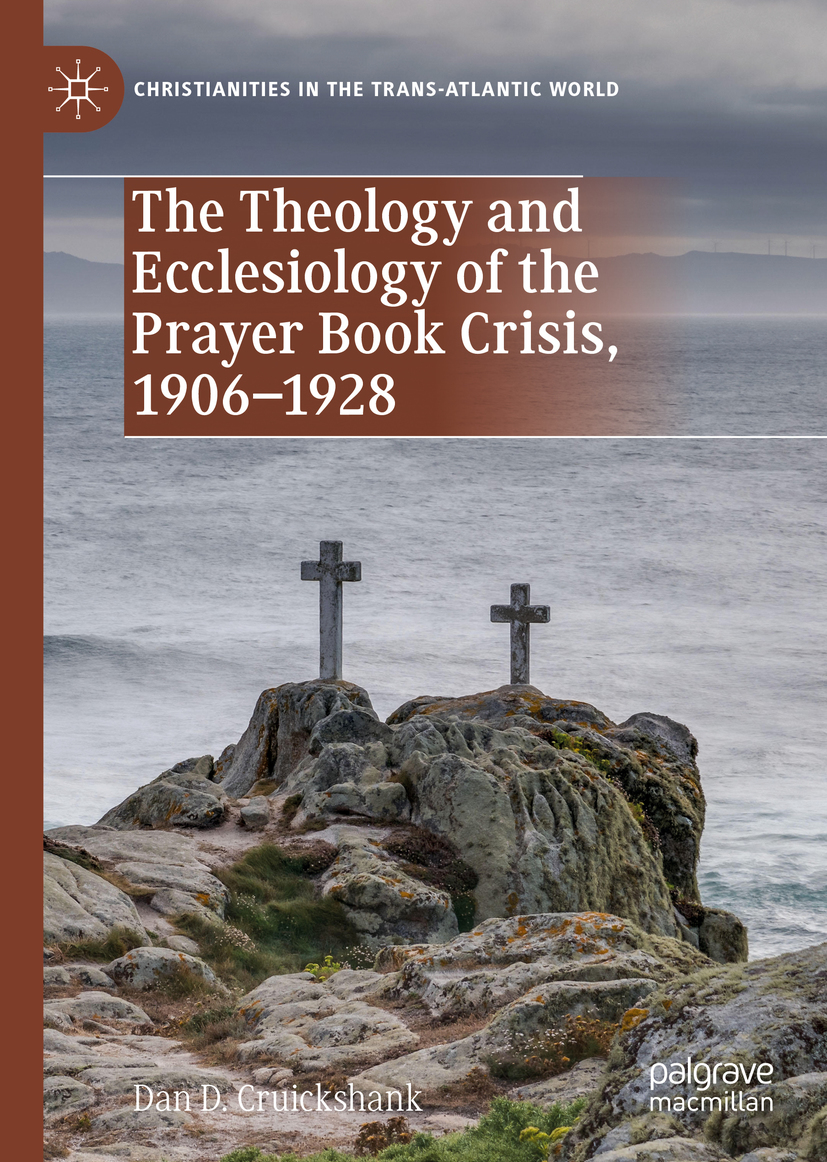
Building upon the recent recovery of interest in religion in the early modern trans-Atlantic world, this series offers fresh, lively and inter-disciplinary perspectives on the broad view of its subject. Books in the series will work strategically and systematically to address major but under-studied or overly simplified themes in the religious and cultural history of the trans-Atlantic. The series editorial board includes David Bebbington (University of Stirling), John Coffey (University of Leicester), Susan Hardman Moore (University of Edinburgh), Andrew Holmes (Queens University Belfast), John Morrill (University of Cambridge), Richard Muller (Calvin Theological Seminary), Mark Noll (University of Notre Dame), Dana L. Robert (Boston University) and Arthur Williamson (California State University, Sacramento).
More information about this series at http://www.palgrave.com/gp/series/14892

Cover illustration: Basotxerri / Alamy Stock Photo
This Palgrave Pivot imprint is published by the registered company Springer Nature Switzerland AG.
The registered company address is: Gewerbestrasse 11, 6330 Cham, Switzerland
To my parents, Anne Bell and Chae Cruickshank.
This book started life as a Masters thesis, so firstly my thanks go to my supervisors Charlotte Methuen and George Pattison. Charlotte, as my primary supervisor, had the unenviable task of guiding me through my masters, and for that I am truly grateful. My debt of gratitude stretches beyond that, as she has been both a great pastoral and academic support during a period of uncertainty in my life. If my work can reflect a sliver of her own, then I will feel great fulfilment academically. But if in my own career I can be as compassionate, caring, and considerate as her towards my own students, I will have gained the greater treasure.
I must also thank the staff of the National Library of Scotland, who helped me discover their collection of the records of both Convocations and the National Assembly . The staff at Lambeth Palace Library also provided great assistance when studying the Archbishops Papers and the minutes of the Bishops Meetings.
On a personal level I must thank my parents, Anne Bell and Chae Cruickshank. Their financial help has enabled me to engage in this study. My Mum has also listened dutifully to my endless complaining over the phone, and my Dad has seen fit to send me supplies to help get me through. This book is dedicated to them, a small token in view of their love and support over the years.
My thanks also go to my friends Hayley Cadel and Lee Johnston for their support.
Finally, I must thank my long-suffering partner, Dr. Victoria Henderson. Somehow she has managed to be a constant support to me whilst at the same time completing her own PhD. No atomic physicist has ever listened to so much about historic liturgical debates in the Church of England. To do so whilst at the same time writing her own thesis and then completing her viva takes someone of immense patience. She has made me laugh and smile at times of stress and reminded me of the world outside the library when it was most needed. For all this, and thousands more things that words could never truly express, I am truly grateful. Without her constant and unending love, not a word of this book would have been written. Hopefully she knows how much I love her too.
The introduction surveys the extent to which the Prayer Book crisis is discussed in contemporary literature. Through this it draws the conclusion that although the Prayer Book crisis is mentioned in scholarship of the history of the Church of England in the twentieth century, it is often done so with minimal content. The introduction then presents a literature review of the main studies of the Prayer Book crisis, demonstrating that although all five of them have their strengths, none provides a comprehensive overview of the two-decade-long revision process. Finally, it concludes by stressing the importance of ecclesiological debates that occurred within the revision process, linking these debates to the current constitutional set-up of the Church of England.
The Prayer Book crisis of 19271928 exists in the knowledge of many in the Church of England in a place between ignorance and folklore. Some in the Church are aware that in the third decade of the twentieth century, the Church of England attempted to get a new Book of Common Prayer through Parliament. What this new book looked like is something very few are aware of. Even to ecclesiastical historians and liturgists the issue remains somewhat of an enigma. Jeremy Morris in The Church in the Modern Age briefly mentions the crisis, specifically its ecclesiological implications: Having gained some legislative autonomy immediately after the First World War , English Anglicans were shocked to find they had no redress when parliament prevented them from reforming their liturgy in 1928. The Books of 1927 and 1928, to many historians, are the great known unknown of the first part of the twentieth century, briefly studied by some, but mentioned only in passing, resulting in a great unknown event.
Font size:
Interval:
Bookmark:
Similar books «The Theology and Ecclesiology of the Prayer Book Crisis, 1906–1928»
Look at similar books to The Theology and Ecclesiology of the Prayer Book Crisis, 1906–1928. We have selected literature similar in name and meaning in the hope of providing readers with more options to find new, interesting, not yet read works.
Discussion, reviews of the book The Theology and Ecclesiology of the Prayer Book Crisis, 1906–1928 and just readers' own opinions. Leave your comments, write what you think about the work, its meaning or the main characters. Specify what exactly you liked and what you didn't like, and why you think so.

